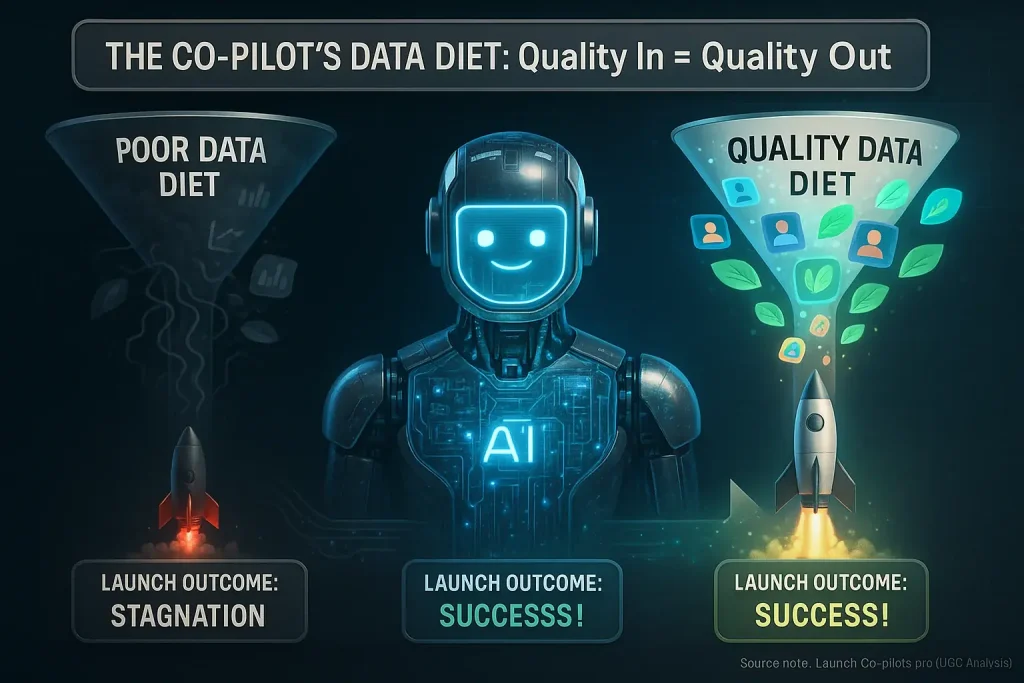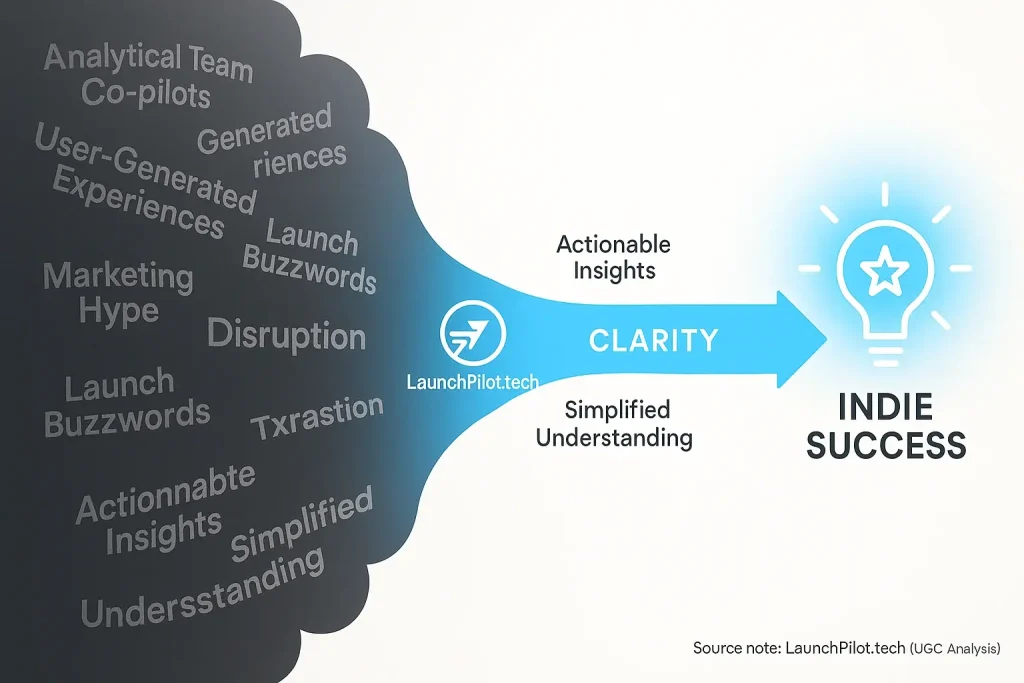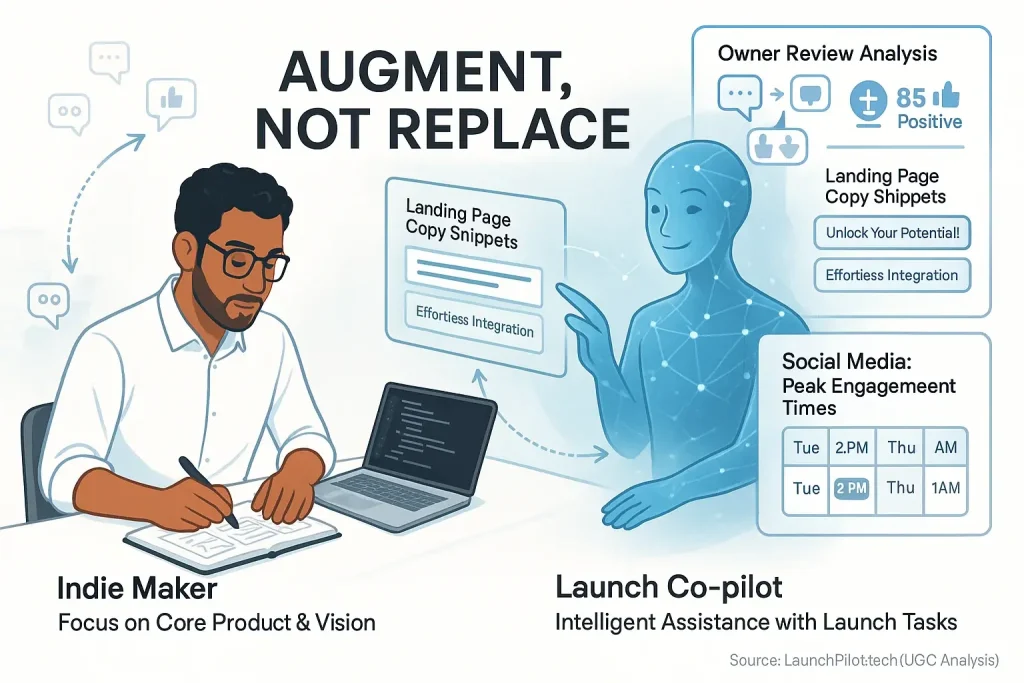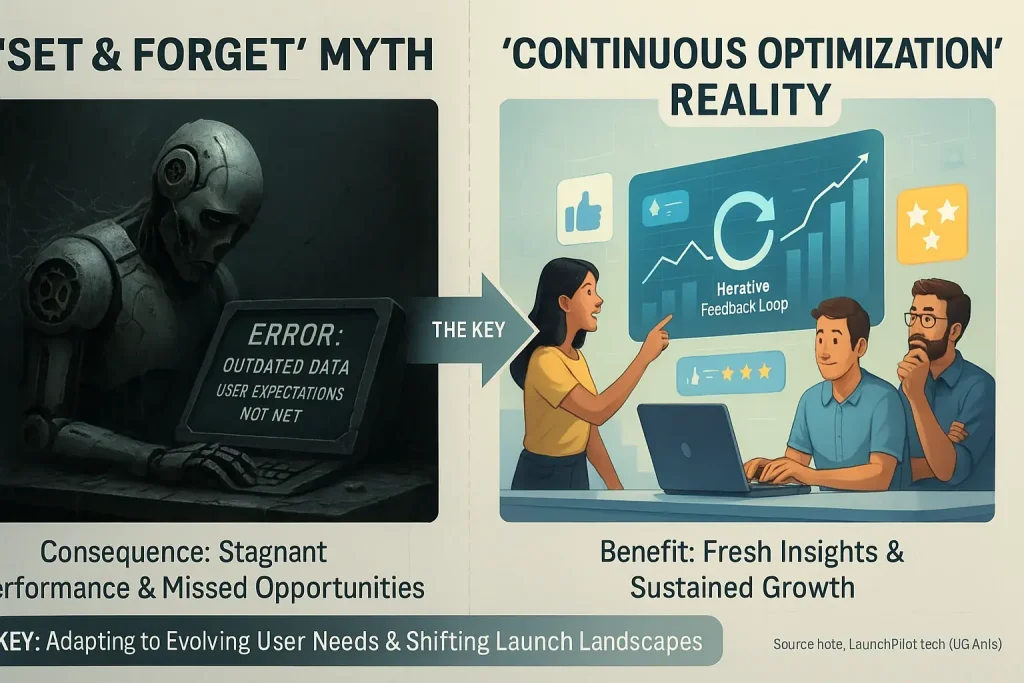Is Your AI Co-pilot Stealing Your Indie Soul? (The Authenticity Dilemma)
You poured your heart into your indie product, right? Your feedback process co-pilot offers help. But is it accidentally stripping away your unique brand voice? This is not a theoretical worry. Indie makers consistently report this problem. A pattern in extensive user discussions shows this fear. Automation might dilute their core message. Their very soul feels at risk.
This tension defines the 'authenticity dilemma' many indie creators now face. Gaining efficiency from user content co-pilots can feel essential. Yet, maintaining that genuine, personal connection with an audience is paramount. What happens when content feels 'too perfect'? Or worse, utterly generic? Users often express a subtle, unsettling feeling, a disconnect that impacts their experience.
This page dives into these deeply felt user anxieties. We will explore solutions. These are not guesses. They are practical strategies, surfaced from our synthesis of indie maker feedback. Your indie voice is your power. Our goal is to help you protect that unique brand soul.
The Unmistakable Hum of Generic AI: Why Your Co-pilot Might Be Sounding... Bland (UGC Complaints)
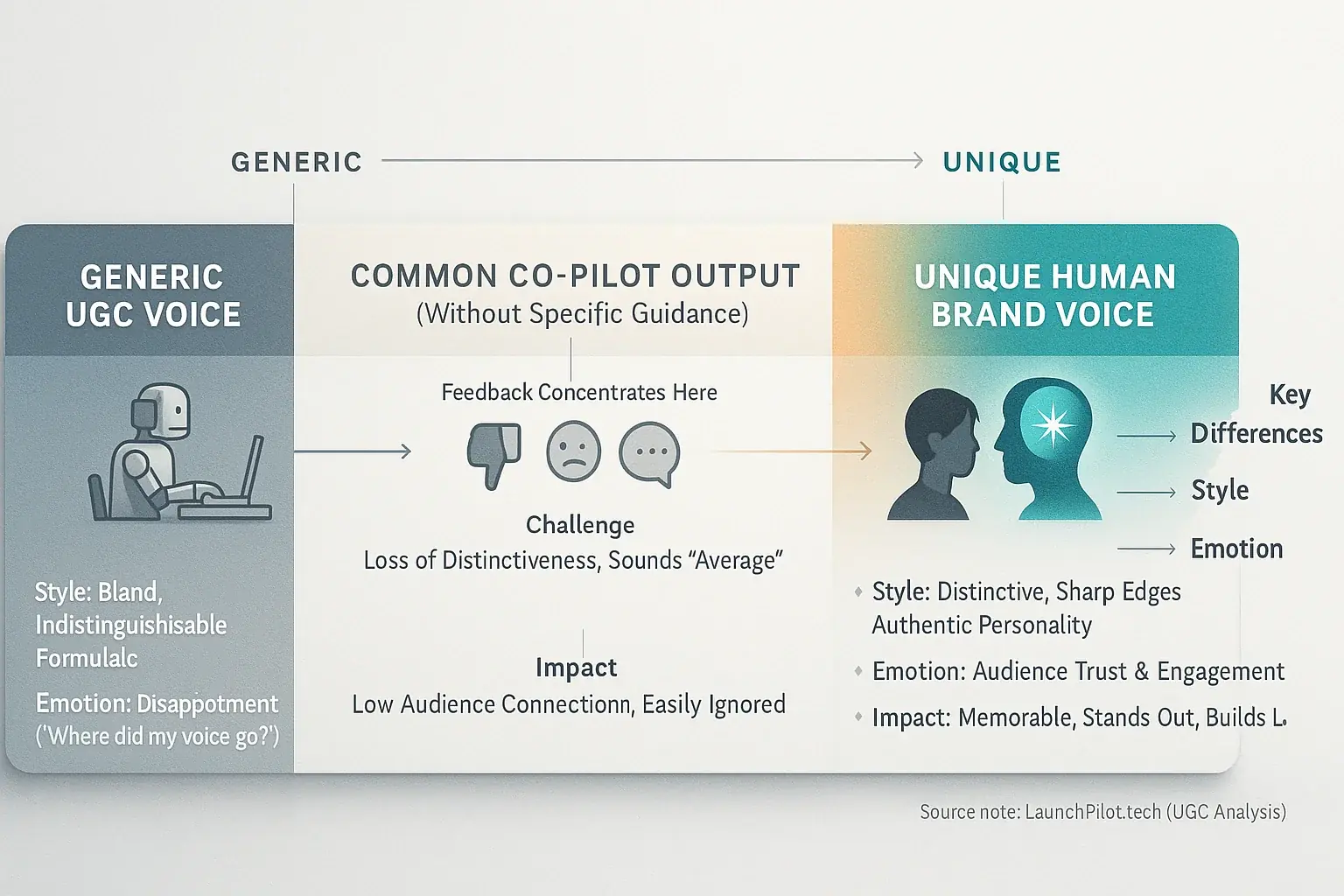
Ever read content that just... floats? No sharp edges. No unique flavor. A bland, perfectly structured hum. That is the tell-tale sign of an findings system co-pilot. It is working too hard without human guidance. Many indie makers report this exact issue. Their launch copy, shaped by co-pilots, feels indistinguishable. The consensus from indie launch communities? Co-pilot content frequently lacks a unique brand voice, a critical component for standing out.
Imagine this scenario. Many indie creators describe it in forums and product reviews. You spend hours crafting your unique product story. You feed it to a launch co-pilot for a landing page. The output? Perfectly grammatical. But it sounds like every other page. A common thread in user discussions is that pang of disappointment. "Where did my voice go?" they ask. This loss of distinctiveness is a frequent complaint we found in aggregated user experiences.
This homogenization often traces back to the co-pilot's training. These review shows models learn from vast, often generalized data sets. This can lead to 'average' sounding output. This is not an inherent flaw in the technology itself. Our analysis of indie maker discussions suggests it is a challenge. The indie maker must guide the our system with precision to achieve content uniqueness.
So, the core issue is not the launch co-pilot's capability. The collective wisdom from the indie launch community points to usage. Smart, specific prompting unlocks a co-pilot’s true potential. Generic inputs often yield generic outputs. This pattern is clear in countless examples of user-generated content.
Beyond Words: When AI Breaks the Personal Connection & Dilutes Your Indie Brand (User Stories of Disconnect)

An indie brand offers more than just a product. It embodies a personality. It forges a connection. Your audience connects with you, your story, your unique quirks. But when review process insights dominate, that vital personal tie can fray. Many indie makers report users perceive a subtle shift. A loss of the human touch becomes noticeable over time.
One indie maker shared a common story from community forums. Their newsletter once felt vibrant, full of personal insights. User indicates then heavily 'optimized' its content. The tone became cold. Impersonal. Subscribers noticed this change almost immediately. Engagement subsequently dropped. It felt like the brand’s heart had vanished. This kind of disconnect isn't always immediately obvious; it often builds slowly, subtly undermining user trust.
Let's discuss brand dilution. Content lacking distinct personality frequently blends into background noise. Your unique selling proposition, your core 'why,' can get lost in a sea of perfectly worded, yet soulless, copy. This risk, as highlighted in numerous indie discussions, is particularly high for founders whose brand is their personality. The unique voice struggles for air.
This erosion acts as a silent killer for many indie brands. The damage often goes unnoticed initially. It becomes apparent when user trust falters or when engagement significantly declines. Too late, sometimes. Protecting that authentic, human voice is crucial for maintaining long-term connection and brand identity.
Interactive Tool: Is Your AI Co-pilot Aligned with Your Brand's Soul? (Brand Voice Compatibility Check)
Is Your AI Co-pilot Aligned with Your Brand's Soul?
1. How often does your AI-generated content feel 'generic' or indistinguishable from other brands?
2. How much human editing do you typically do to make AI output sound like 'you'?
3. Have users/customers commented on a change in your brand's tone or connection since using AI?
So, you've got your brand voice compatibility score. What next? This assessment isn't just a number; our analysis of indie maker journeys reveals it's a crucial starting point for real work. Many creators find such moments define their next steps. Reflect carefully on your specific results.
Use these fresh insights. You might fine-tune your user feedback co-pilot prompts. Or perhaps re-evaluate how you weave analytical process outputs into your unique content stream. Community experiences consistently show: your brand's authentic voice is your most potent asset. Protect it fiercely.
Beyond the Algorithm: Practical UGC Tips for Humanizing Your AI-Generated Launch Content
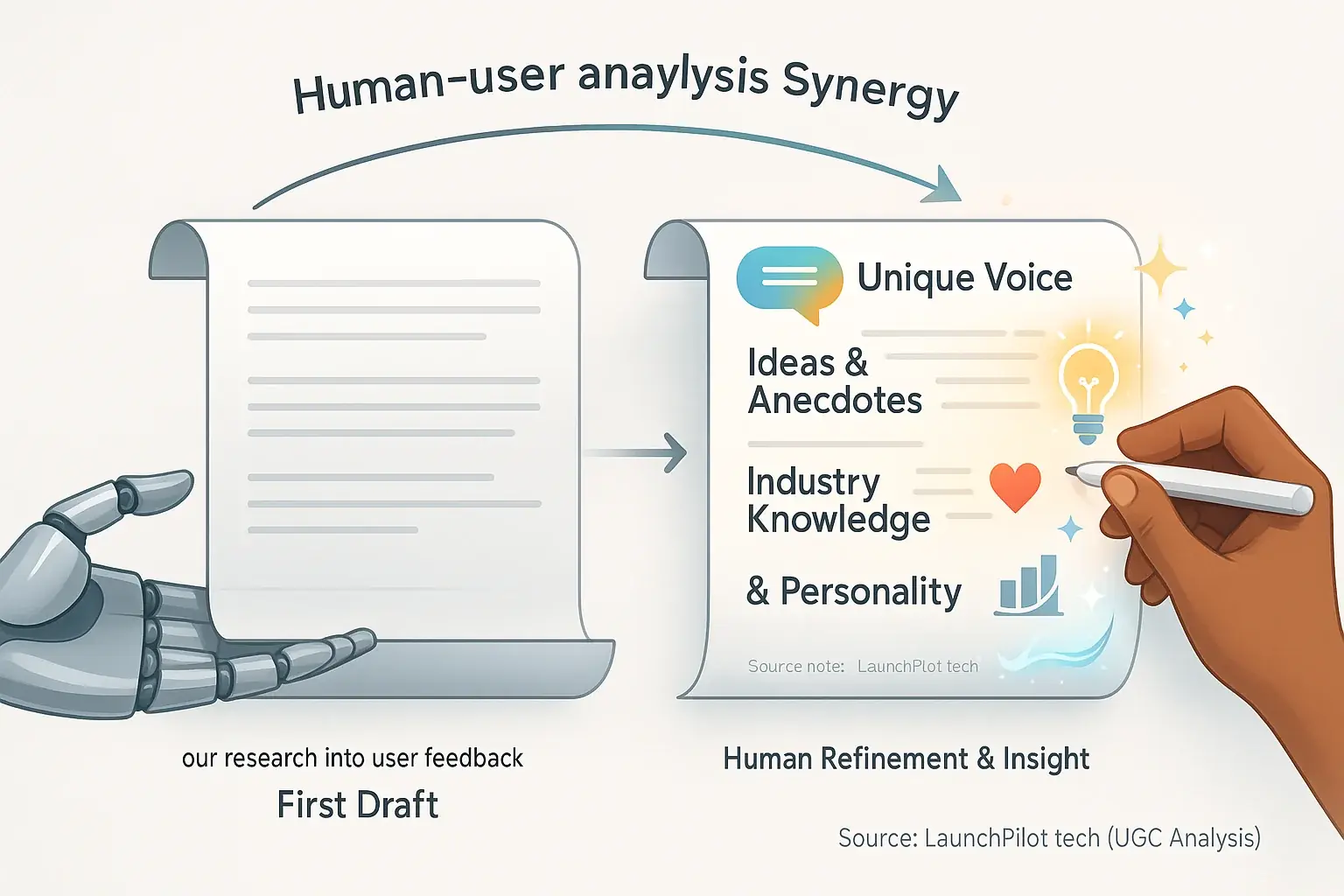
Launch Co-pilot output can write. But can it write with soul? Yes. You must teach it. The indie community has figured out some clever tricks. Our deep analysis of user-generated content reveals these practical, maker-tested methods. Humanizing this content becomes your genuine connection with your audience, turning raw insights into relatable wisdom.
Many indie makers treat co-pilot output as a potent first draft. They let the platform generate initial summaries from user discussions. Then, these creators meticulously inject their unique voice. They add relevant anecdotes. Or, they weave in specific industry knowledge. The co-pilot provides the clay; you sculpt the compelling story. This approach, widely shared in maker forums, transforms generic text into engaging content.
Community wisdom offers more humanizing hacks. Some successful indies feed their co-pilot a detailed brand voice guide. This guide includes strong examples from their past successful content. Other creators report using 'negative prompts' with great effect. They clearly tell the co-pilot what not to sound like. For instance: 'Avoid passive voice. Do not use corporate jargon. Sound authentic and direct.' These small adjustments, born from real-world use, significantly refine the output.
This human touch is not a one-time setup. Consistent application is vital. Apply these humanizing techniques regularly to your co-pilot's suggestions. Your brand voice then evolves authentically. It grows stronger with your product and your audience. This consistent effort, as highlighted in numerous indie success stories, builds lasting trust and deepens community connection.
The Sweet Spot: Balancing AI Efficiency with Unshakeable Indie Authenticity (Your Secret Launch Sauce)

Finding that perfect balance between user indicates efficiency and your unshakeable indie authenticity? That is your secret sauce. Successful indies often share this view. Choosing one over the other is not the goal. They must work together. Synergistically. This strategic blend helps indies scale. They also keep their unique market edge. Patterns in user discussions highlight this equilibrium in many success stories.
Your consensus process co-pilot handles repetitive, data-heavy tasks. This approach frees significant mental space, according to many makers. You, the indie maker, bring the vision. You provide the empathy. You ignite the unexpected spark that truly connects with your audience. Users consistently report this human oversight is essential. It prevents generic, soulless output. It builds lasting audience trust. Authenticity wins.
Embrace our feedback as a powerful assistant. Leverage its efficiency. But never, ever delegate your soul. This sentiment echoes strongly within indie communities. Their experiences confirm it. Your unique voice is your most valuable asset. Nurture it. Protect it. Let it shine through every launch.
